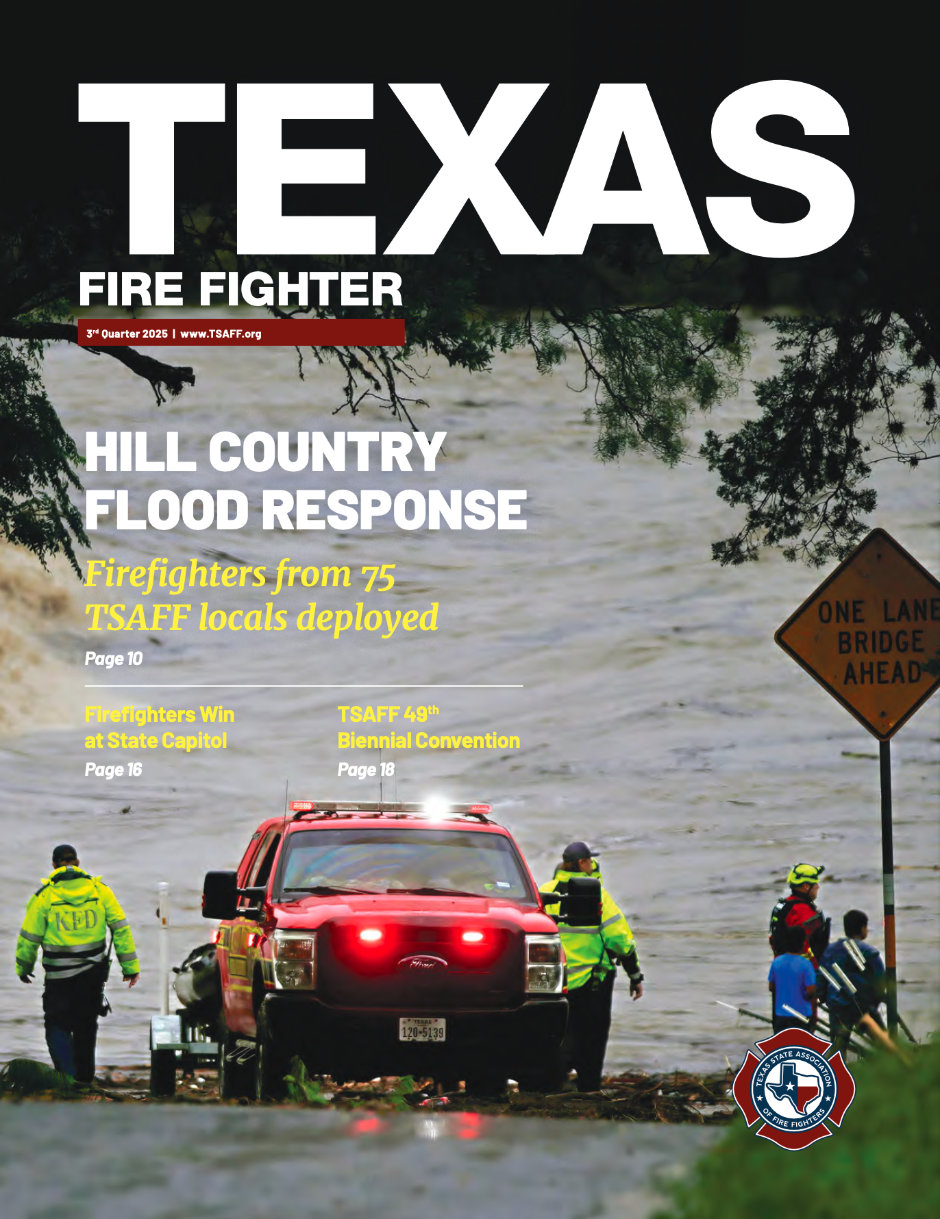FOR IMMEDIATE RELEASE
Historic Texas Firefighter Line-of-Duty Cancer Research Program Established
TSAFF: Funded by Texas Legislature, research set for UT Health Science Center at Houston
AUSTIN, May 29, 2025 – Texas firefighters will soon have more insight into the causes and possible mitigation of occupational cancers and other diseases with the creation of a dedicated $5 million research program at The University of Texas Health Science Center at Houston, the Texas State Association of Fire Fighters (TSAFF) announced today.
Included in Texas Senate Bill 1, the E.3.3 Firefighter Cancer Research appropriation, subject to final Senate and House approval and the governor’s budget approval, will provide $2.5 million in fiscal years 2026 and 2027 to UTHealth Houston “to conduct research on firefighter cancer and other firefighter related diseases, study existing research, develop mitigation policies, and aggregate information from previous studies.”
The University of Texas Health Science Center at Houston Southwest Center for Occupational and Environmental Health research will study “the work history of new, active, and retired firefighters, air samples from fires to measure exposure to cancer-causing chemicals, and cancer data from the Texas Cancer Registry and other sources. The study shall identify which groups of firefighters are most at risk and recommend policies and programs that will protect their health. The Center for Occupational and Environmental Health shall report its interim findings to the Legislature no later than December 31, 2027.”
TSAFF President John Riddle said, “Texas firefighters are grateful for the support of our state legislature as we all work to prevent occupational cancer and other exposure-related diseases. We are proud of our legislative team in our work with Sen. Brandon Creighton and the UTHealth Houston team, as they all made this a priority this session. Texas firefighters appreciate the support of legislators committed to helping reduce the terrible consequences of occupational cancer in the fire service – including Sen. Creighton, Rep. Jared Patterson, Rep. Stan Kitzman, and Rep. Armando Martinez, particularly Sen. Creighton’s doubling of the funding. We also acknowledge Houston L-341 firefighters for their support of this initiative.”
“Firefighters also have a higher prevalence of cancer than the general population and a greater chance of dying from cancer,” the legislature reported. “Many cancers are presumed to be caused by a firefighter’s duty and are compensable for benefits under workers compensation. This results in millions of dollars a year being expended by insurance companies and fire departments in addition to the human toll. The fire service in Texas has made satisfactory progress in cleaning gear contaminated by carcinogens and properly ventilating combustion fumes out of the fire station, but there is still an increased risk for certain cancers. … Further research would lead to ways to mitigate the issue and set up best practices for the future.”
Homer Salinas, a Mission, Texas firefighter and occupational cancer survivor, said, “This research clearly has enormous potential to save firefighter lives in Texas. During my cancer fight, I relied on the fire service community, my wife, who’s an oncology nurse, and my doctors, but even then, we could have benefited from more research. There’s so much we don’t yet know about firefighter cancer, so my family is very encouraged by this news. We look forward to seeing how UTHealth Houston’s research develops.”


.webp)
